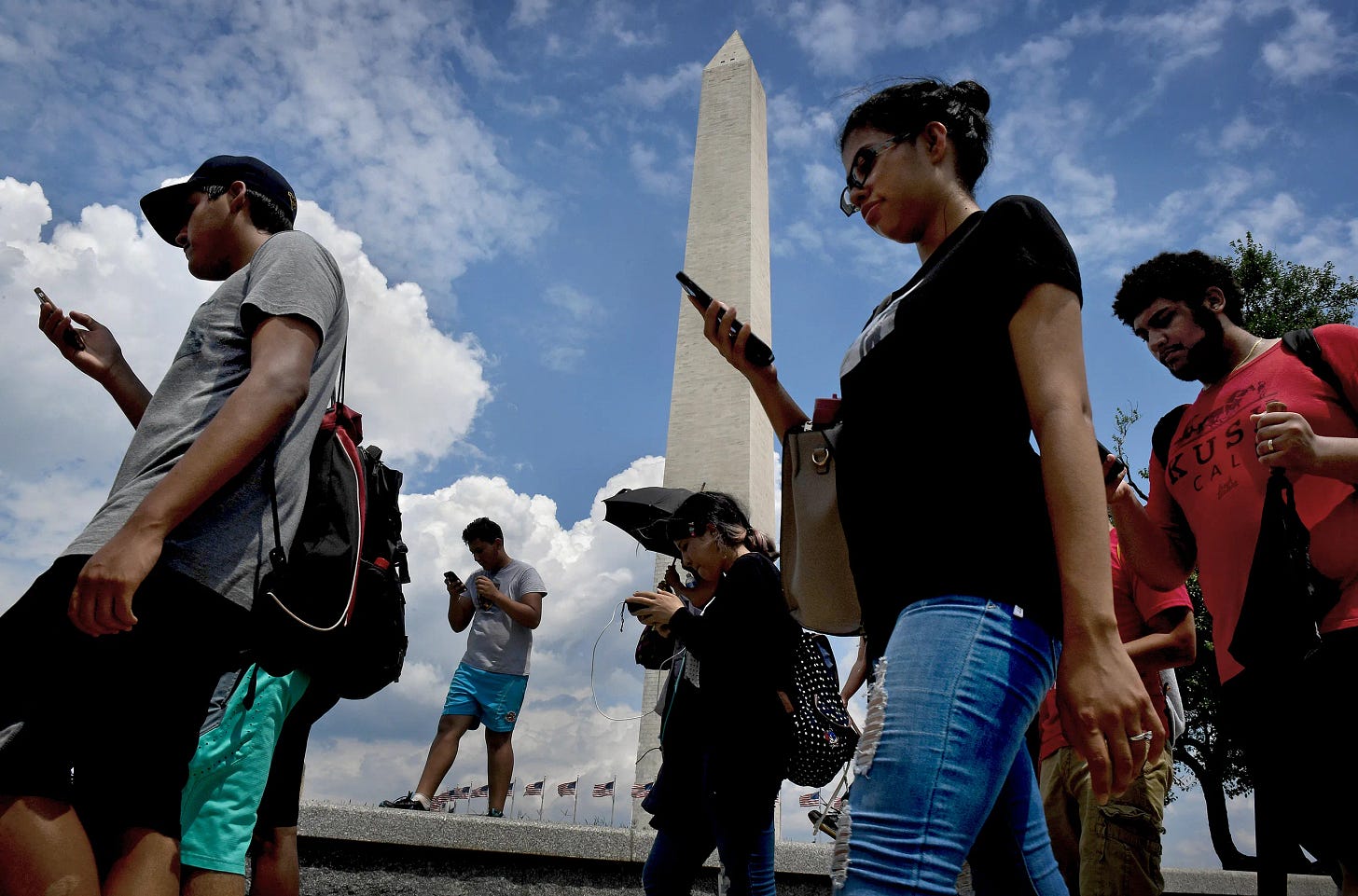Why do we need to be incentivized to pay rent?
When basic adult responsibilities need gamification, it's an indicator we're in a culture of decay.
Once upon a time, paying rent was something you just did. You made a payment and you got a place to live. And if you missed a payment, you’d surely get an angry call from your landlord (if you were lucky) or an eviction notice (if you were unlucky). Moving into your own place and taking responsibility for yourself was considered a right of passage into adulthood.
It’s still like that, right?
WRONG! In today’s Candy Crush, hyper-stimulated phone-scrolling world, practically everything is now gamified. The generation that grew up addicted to ‘participation trophies’ and ‘everyone’s a winner’ apparently needs to be incentivized with perks, discounts, points and cash back offers in order to… wait for it… pay the rent.
The following TikTok video pretty much sums it up.
This is Eddy. She’s always doing something… For years she paid rent like everyone else. Month after month. Year after year. Thousands of dollars. With nothing to show for it. Not even a thank you email.
Thank you emails for paying the rent? Forget about it.
Services like Bilt, Stake, and Piñata are rewarding tenants with incentives like 2% cash back or points they can exchange for home goods, gift cards, travel, or other services. The apps are being billed as a win-win for landlords and tenants. ‘Responsible’ tenants are rewarded, while landlords reduce tenant turnover and increase on-time payments.
Hoo-boy! Where to even start?
Basically, these services are part of the ‘coddle’ economy. It’s where infantilized adulthood is reinforced, and every aspect of life is transactional and must be rewarded — with a healthy sprinkle of data mining and surveillance capitalism thrown in for good measure.
Bilt, which launched in 2021, not only rewards you for rent payments but also tracks your neighborhood spending, travel, dining, and even Walgreens purchases through their proprietary credit card. As the company’s privacy policy confirms, this data can be shared with third parties for “marketing and analytics.”
What do renters get in exchange? Not that much, though some argue every little bit counts. “When you’re being overcharged for rent and you’re unemployed, getting even [$15] back every month is a blessing,” 44-year-old Ernest McKee told the Wall Street Journal last year. One New Jersey tenant said her points were enough to buy reusable paper towels and a set of colored pencils for her toddler. Some services allow you to earn points that can be redeemed towards an outstanding student loan — it’s the financial equivalent of ‘eat to get slimmer.’
Why are millions of people signing up to hand over their personal data in exchange for meager perks? And, further, why are these companies enjoying incredible success? (Bilt has raised $563 million in just a few years, and the company is valued at $3.1 billion.
It boils down to ‘behavioral engineering’ — better known as the science of shaping human action through nudges, rewards, and environmental cues rather than moral appeals or negative reinforcement. Basically, behavioral engineering is a potent fusion of psychology, economics, marketing, and technology with the power to shape outcomes.
Put it this way: they’ve figured out that ‘pay your rent on time and get a free yoga class,’ beats ‘pay your rent on time or get kicked out.’
You’d be forgiven for thinking this is a pretty benign tradeoff, but free lattes in the neighborhood coffee shop are just the tip of the iceberg. Behavioral engineering is pervasive throughout our lives, with governments setting up ‘nudge units’ to control societal outcomes, militaries using the tactics for psychological warfare and propaganda, and Silicon Valley designing highly addictive engagement loops engineered to hijack our brains.
The ubiquitous smartphone has made things worse. It’s not only a tool for entertainment, communication, and assistance for the directionally challenged, it is also an active addiction device used by powerful forces to impact cognition, create compliance, and influence thought and action. If that sounds far-fetched, look no further than hit app Pokémon Go. Launched in 2016, the app literally gamified everyone’s daily walk to work, encouraging the mediation of daily life through the screen and thus pioneering ‘augmented’ reality on a mass scale.
Here we are then, about 10 years after the Pokémon experiment, with more powerful tech companies, a rapid embrace of artificial intelligence, the very palpable dysfunction of individual agency, and the most obvious linkages between three-letter agencies and a desire to control our daily lives.
Turns out, subjugation isn’t that difficult to achieve — just offer a few points, or free lattes, or an introductory goat yoga session in exchange for compliance. Yes, the desperate desire for control has come down to incentivizing payment of rent, but we can’t help but ask: on the cusp of nationwide ‘protests,’ just how far can we be nudged?






I think it comes down to the old adage of "You can catch a lot more flies with sugar than with vinegar."
It is cheaper to give a few random perks than it is to pay for debt collection and eviction procedures.
The whole addiction to smart phones is mostly generational. I remember having teachers who derided the use of computers. Calculators were expressly forbidden. I had teachers who would not accept anything written on a computer, believing that it was inferior. I beat them at that game and bought a daisy wheel printer that was indistinguishable from a typewriter.
Yes, some skills were lost. They were replaced with other skills. We exchanged knowing how to hitch up a wagon for knowing how to change a tire and operate cars. Being able to set the timing on an engine was replaced with knowing how to operate diagnostic tools on engine control units.
Computers are tools. They have no intrinsic morality. They can be used for good or evil.
My insurance company has offered free smart devices for home monitoring. They have offered a reduction in my auto insurance rates in exchange for monitoring my driving habits. I didn't even consider them. I didn't feel that it was a fair exchange for my privacy.
It is a lot tougher where there is an imbalance of power in the relationship. Activity monitors on computers, video surveillance, tracking devices on vehicles, electronic access keys, biometrics, and such. It is going to take time until we come to grips with what we allow to be done with the data that is collected.
It will have to be decided legally and not just left up to the discretion of companies who have no regard for the intrusiveness and who are able to change the terms of service unilaterally without any option to negotiate. It is even tougher when the government uses these tools.
For myself, I opt out from as much as possible. Even though I don't have a smartphone, I don't carry my cell phone with me unless I have an express reason. I don't even answer it unless it is a known caller that I want to talk to. If I want to carry it for my convenience, I have a power button and can just turn it off unless I want to use it. It has a really nice system to take messages and save text messages while it is off. It is still a huge improvement over a landline telephone.
Maybe I miss out by not having a store app to claim a discount or reward program. I really don't care. There are some advantages. I don't mind if I am going to make a purchase that will trigger a text from my credit union to authorize to prevent fraud. I don't mind 2-factor authentication done through my phone. I make sure to do things that require it during business hours so I can call and handle things personally if there are problems.
Like it or not, the new tools that we have available are not going away. It also takes education to learn to navigate them. If people don't bother to learn, that's on them.
Age 52, I see that my “privileged” suburban GenX was infantalized, just like our school teachers accused us of being coddled, spoon fed, & not knowing how to do anything real.
I’m old enough, now, to take stock of the long term consequences, to me personally & to society collectively, of this 1st infantalized US generation, my GenX.
And as the internet has recently caught me up to speed with cultural developments ever since 1990, when I turned off the tv & dropped out of mainstream society, I realize how much more infantalized the Millennials & GenZ are than was my GenX.
So, I’m worried about that.